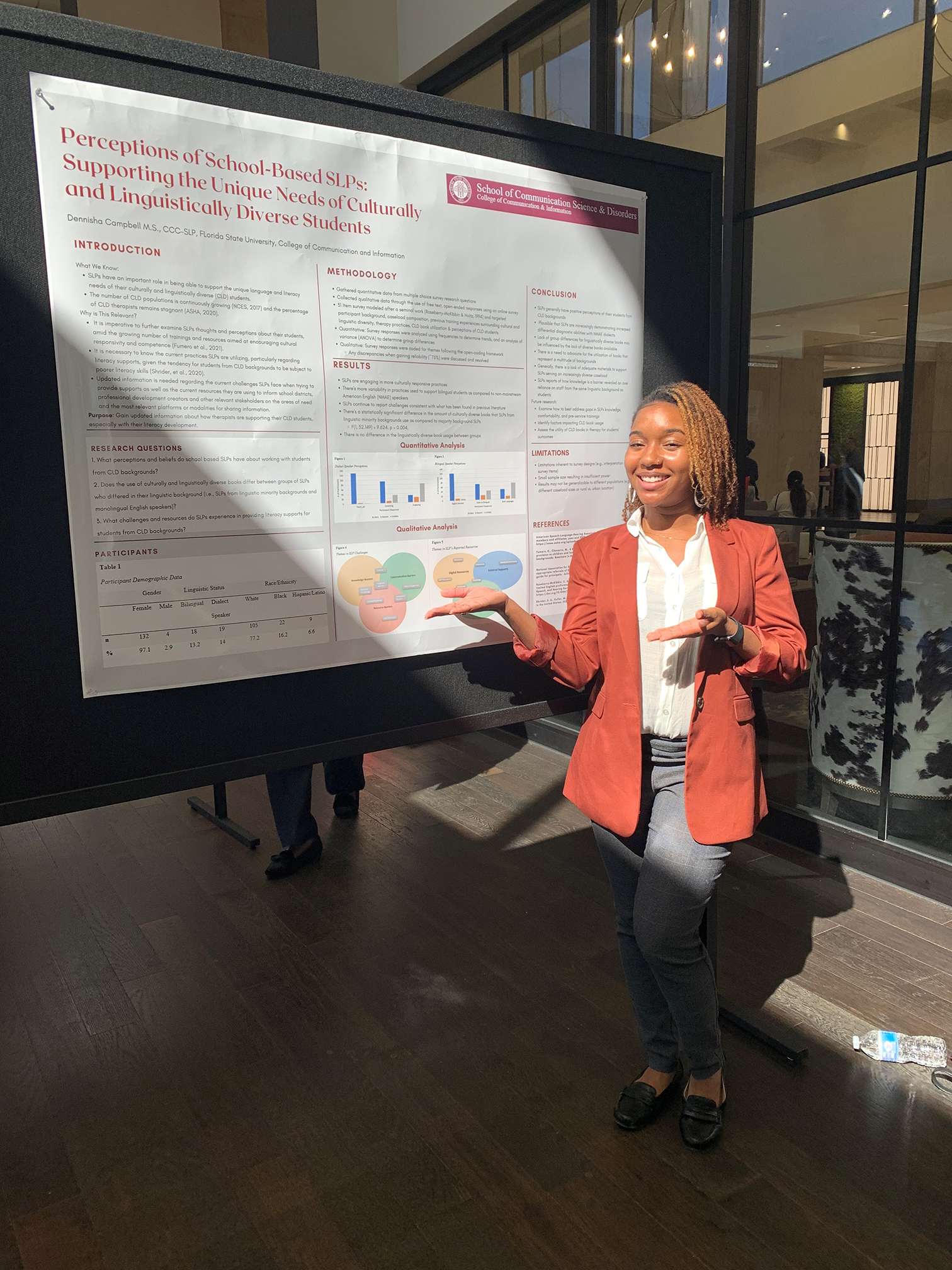Denisha Campbell recently presented her work at the National Black Association for Speech-Language and Hearing (NBASLH) Convention from March 17-19, 2022 in Houston, TX.

The presentation was rooted in Campbell’s interest in exploring the manner in which Speech-Language Pathologists (SLPs) are able to support students from culturally and linguistically diverse backgrounds, specifically with their literacy development. This presentation focused on one of Campbell’s major findings from her research which found that SLPs from linguistically diverse backgrounds utilized more culturally diverse literature as compared to SLPs from monolingual backgrounds. On the qualitative side, Campbell found that SLPs have a number of barriers, such as access to resources that inhibit their ability to provide effective therapy for culturally and linguistically diverse groups.
Prior to enrolling in the PhD program at Florida State University, Campbell was an SLP and tele-therapist where she worked in schools that have a large population of English/Spanish and African American English-speaking students. When she saw students from other therapists that had unattainable goals, Campbell knew that there was a struggle to help bilingual and African American English-speaking students, which led her to begin research by conducting a survey of SLPs across the U.S. “Now that we have this understanding of barriers within SLPs, we can proceed with actionable steps to enact change,” said Campbell.” “A slow process, yet a gratifying one.”
“One of the biggest take-aways is an acknowledgement that we need to continue to focus on actionable ways to ensure that we are upholding the pillars of diversity, equity and inclusion. It is no longer acceptable that resources that can help our therapists, then help their students, are inaccessible. If we are truly dedicated to ensuring equitable access to everyone, then it is my hope that my own research and others that have found similar results will push the needle forward so we can see the necessary changes.”
